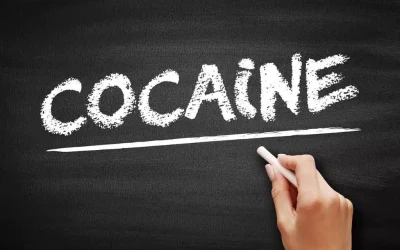Content
It’s not about simply being blind to the negative consequences of drinking or using drugs. In fact, many people with addictions are well aware of the problems substance abuse is causing them. Learn about the types of addiction denial and the purposes denial serves. It’s normal for people with addictions to deny they have a problem with alcohol or drugs. For people with addictions, drugs and alcohol are their best friends and their worst enemies.
The authors offer suggestions regarding how to identify those drinkers in need of advice regarding dangers of their behaviors. People with addictions may seemingly live in denial but it usually runs on a spectrum. An addicted person may be operating under some form of self-deception or outward denial to loved ones, even if they know they have a problem.
Stage One Denial
For example, alcohol and heroin are often sought for their numbness. It can be very difficult to be a bystander in a situation like this, knowing that the person on the other side can improve their life if they just acknowledge the problem and take the right steps to combat it. The third .stage of denial is dismantled by the constant recommitment to active participation in the recovery support fellowship of your choice. The real change takes place in the spirit (innermost self), not in the mind (understanding).
This could mean paying their legal fines, bailing them out of jail, or even continuing to forgive them time and time again. In order to stop enabling someone, it may feel like you’re too harsh or mean. But ultimately, when you stop enabling someone it is a sign of how much you care for them. The current analyses focus on inaccurate denial of current AUDs in individuals who report themselves as light or moderate social drinkers. To prepare for the study we searched the literature for specific characteristics of individuals who evidence denial. Even more inconsistent results were seen for the relationship to denial for sex, age, socioeconomic status or income (Clark et al., 2016; Fendrich and Vaughn, 1994; Ortega and Alegria, 2005; Rinn et al., 2002; Rosay et al., 2007).
Overcoming Stage Three Denial
There are also other potential sources of useful information on addiction treatment. For example, you may want to consult specialists not working at a recovery center. You may also inquire about available resources with your insurance provider. In order to understand what goes on in the mind of someone battling substance abuse and in denial, it is important to understand exactly what denial is in a situation such as this. The second stage of denial is easily broken by the transference of dependency from self to the sobriety support fellowship.
- Research suggests that denial may be experienced by people with alcohol use disorder.
- Families frequently in the line of fire with the addict don’t get very far.
- It cuts off the possibility of positive change, leading to a lifetime of issues with health, finances, and relationships.
- It is also important to understand that denial can be on both an intellectual and spiritual level.
Feelings of guilt and shame commonly underlie alcoholism, and they occur when an alcoholic blames themself for their addiction. Guilt and shame6 can lead the person to label themselves as being “bad,” which prevents them from recovering. In addition, Emerald Isle is your source for top-quality alcoholism treatment.
Inability To Overcome Fear as a Symptom of Alcoholism
Helping an addict or alcoholic takes education, persistence, and patience. In conclusion, denial of a general alcohol problem by individuals who admitted to multiple AUD criteria items was quite common in the SDPS, despite prodigious maximum drinking quantities. This pattern of denial indicates that greater efforts need to be made to educate our patients and our colleagues regarding what an AUD is and how serious the prognosis can be. For AUD probands, deniers were less likely to endorse several specific criteria that might offer some insights into why they do not consider themselves problem drinkers.

Lf you are depending on your own power to do this, you are in the second stage of denial, This is true regardless of how long you are sober. Many people have painfully discovered this, having relapsed after years of continuous sobriety. What we are dealing with is a whole denial system, not just denial of a particular problem. It is also important to understand that denial can be on both an intellectual and spiritual level. It is common to see a person who intellectually accepts being alcoholic but doesn’t believe it in his innermost sell.
Reasons for denial in alcohol use disorder
Somewhere inside he realizes that his drinking means more to him that he is willing to admit. When you address your loved one’s drinking, use compassion and empathy. Avoid criticizing and shaming, and focus on highlighting your love and concern. Acknowledge the positives and listen to their response, even if you don’t agree. It cuts off the possibility of positive change, leading to a lifetime of issues with health, finances, and relationships.
- Someone who is high-functioning uses drinking to cope with unpleasant emotions or stressful situations.
- It may be challenging to approach an opiate addict who is falling asleep or a methamphetamine abuser fresh of recent use who is erratic and full of energy.
- People with alcohol use disorder sometimes have reduced capacity for organizing and analyzing available evidence to draw a conclusion.
- Because high-functioning alcoholics can still hide their internal struggles from the casual observer, people who are high-functioning alcoholics are often deeply in denial about the extent of their problem.
- Alcohol use vs. abuse is not a black or white issue—there are shades of gray.
- SRE-T scores reflect the average across first five, heaviest drinking period, and recent 3-month drinking.
What usually occurs as a result of this strategy is the addict often makes changes much more quickly and more effectively. Addiction doesn’t discriminate by age, gender, race, or socioeconomic status. People from all different walks of life can struggle with alcohol use disorders.
Addiction Denial is defined two different ways by most experts in the substance abuse field. Discerning the differences between the two is paramount in working effectively with people in treatment. A more appropriate way to screen patients for alcohol impairment would be to use a standardized and more detailed review of patterns of drinking and alcohol-related problems such as the ten item AUDIT. This instrument https://ecosoberhouse.com/ takes only a few minutes complete and can be filled out by patients in the waiting room (Babor, 2001; Sanchez-Roige et al., 2019). Such standardized approaches might be especially useful for identifying high functioning individuals with AUDs whose SES might erroneously imply that they are less likely to have alcohol problems. In one, they’re responsible and sober, never missing a birthday or rent payment.
Learn more about what influences a person’s susceptibility to alcohol dependence and the warning signs, physical and behavioral symptoms, and stages of alcoholism. Living with someone in active addiction affects every aspect of life—from work to finances, physical well-being to relationships with family and friends. https://ecosoberhouse.com/article/alcoholism-and-denial-helping-an-alcoholic-in-denial/ Ignoring or denying the difficult and painful consequences of alcohol addiction will only make things worse. In fact, by the time families reach out for help with a loved one’s alcoholism, the disease may have progressed to a crisis level involving an accident, lost job, arrest or medical emergency.
